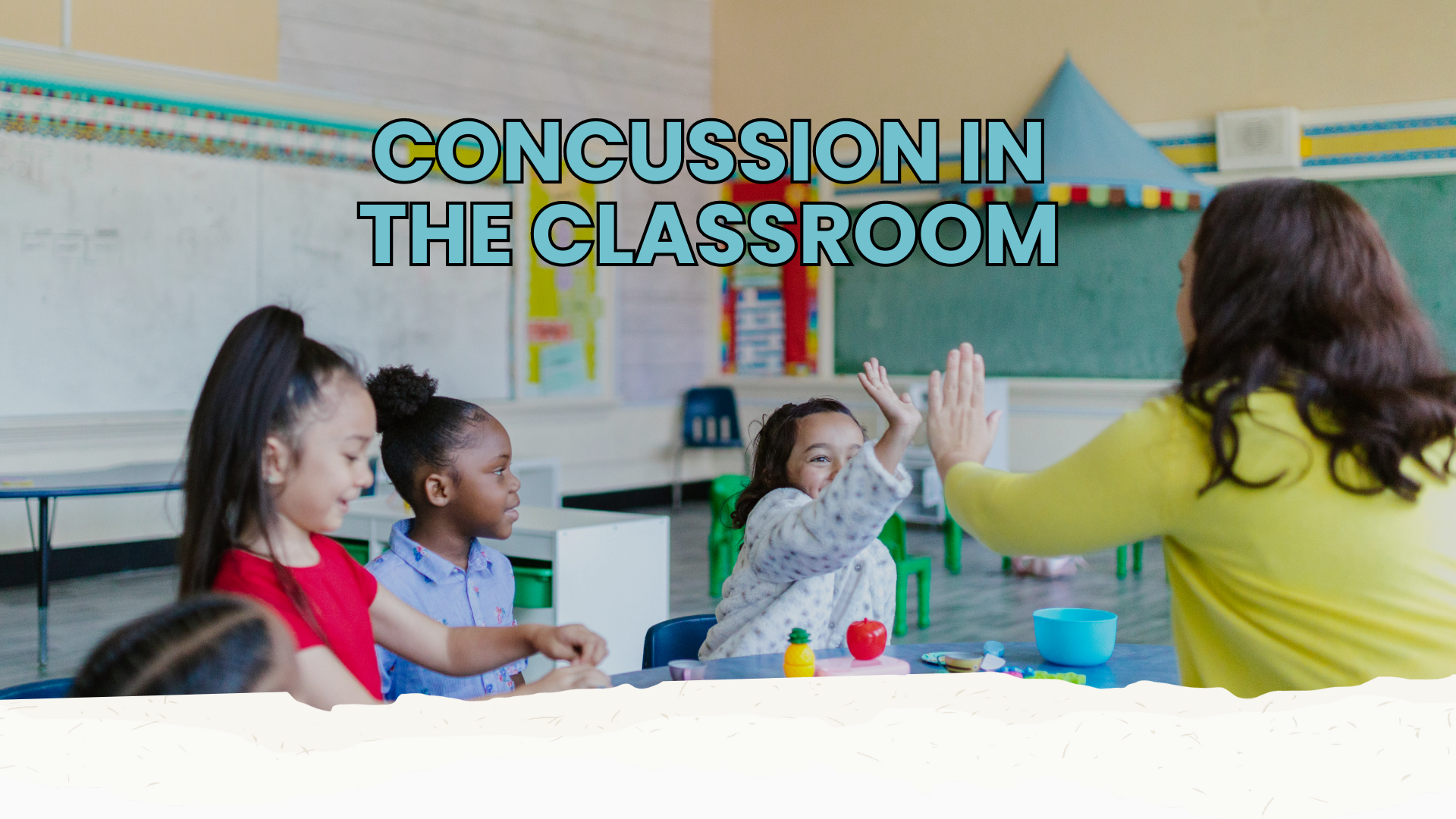We all have a part to play in supporting individuals who have sustained a concussion.
After sustaining a concussion, individuals may experience physical, cognitive, social, and emotional impacts that may take weeks or months to resolve. A gradual return to activity looks different for everyone.
Accommodations
An accommodation is a change or alteration to the regular way a student is expected to learn, complete assignments, or participate in the classroom.
- Goal: Inclusion and full participation at school
- Results in equal opportunity to attain the same level of performance
- Student treated with dignity and respect
- Ongoing process
There are 3 main types of accommodations: environmental, instructional, and assessment.
Environmental Accommodations
- Provide an alternate workspace with less noise & distractions (e.g., library)
- Offer preferential seating to minimize distractions (e.g., front of class, near teacher)
- Allow nutrition breaks
- Reduce audio/visual stimuli (e.g., move student away from windows, dim lights, reduce background noise)
- Allow the student to wear aides to reduce light & noise (e.g., headphones, sunglasses, hat)
- Provide extra time for transition between classes
- Excuse the student from assemblies
- Allow the student to rest in a quiet room
- Provide a visual summary of the daily schedule
Instructional Accommodations
- Provide extra assignment time
- Provide an outline or study guide
- Provide alternatives for screen-based instructions
- Chunk & breakdown tasks so they are smaller & manageable
- Provide breaks when moving from task to task
- Provide short & concise written instructions
- Have the student write down instructions or repeat instructions in their own words
- Use colour coding/highlighting to emphasize key pieces of information
- Monitor participation in group work
- Provide print-outs instead of note-taking
Assessment Accommodations
- Provide an agenda/planner to help with organization
- Encourage the student to use to-do lists & checklists
- Have the student record daily homework assignments
- Limit the amount of homework
- Help the student to prioritize tasks
- Extend deadlines for assignments
- Stop testing or evaluating the student until appropriate
- Provide extra time & breaks for assessments
- Offer an alternative workspace for test-taking
- Allow the student to use fact sheets on tests
- Adjust the test design (e.g., T/F, multiple choice, matching)
- Allow oral exams (in place of essays or long answers)
- Weight the assessments differently
Solution-Focused Language
Another way to help students affected by concussion is by using solution-focused language.
Ask questions about what the student wants rather than what they don’t want
- “What are your best hopes for your return-to-school?”
- “What would make today a manageable day?”
Ask questions about what has worked for the student in the past
- “Think back to a recent time when things felt a bit more manageable. What were you or others doing that helped make it manageable?”
- “You had a good day yesterday. What did you or others do to make it a good day?”
Use powerful compliments that amplify the student’s strengths, resources, and ideas
- “I am so impressed at how hard you have been trying. It tells me you are mature and take your education ‘seriously’.”
- “Wow, it sounds like your brother is a really important support person for you…”
- “That was a great idea you had about sitting up front in math class.”
Ask questions that pull out details of how students and others have helped
- “How did you do that?”
- “What did your mom do that was helpful?”
Ask questions that highlight how the student is coping, despite their difficulties
- “Considering what you’re dealing with, what keeps you strong?”
- “How have you been managing?”
Source: School First, Holland Bloorview Rehabilitation Hospital
Want to learn more about concussion? Contact us today to book a training presentation.



